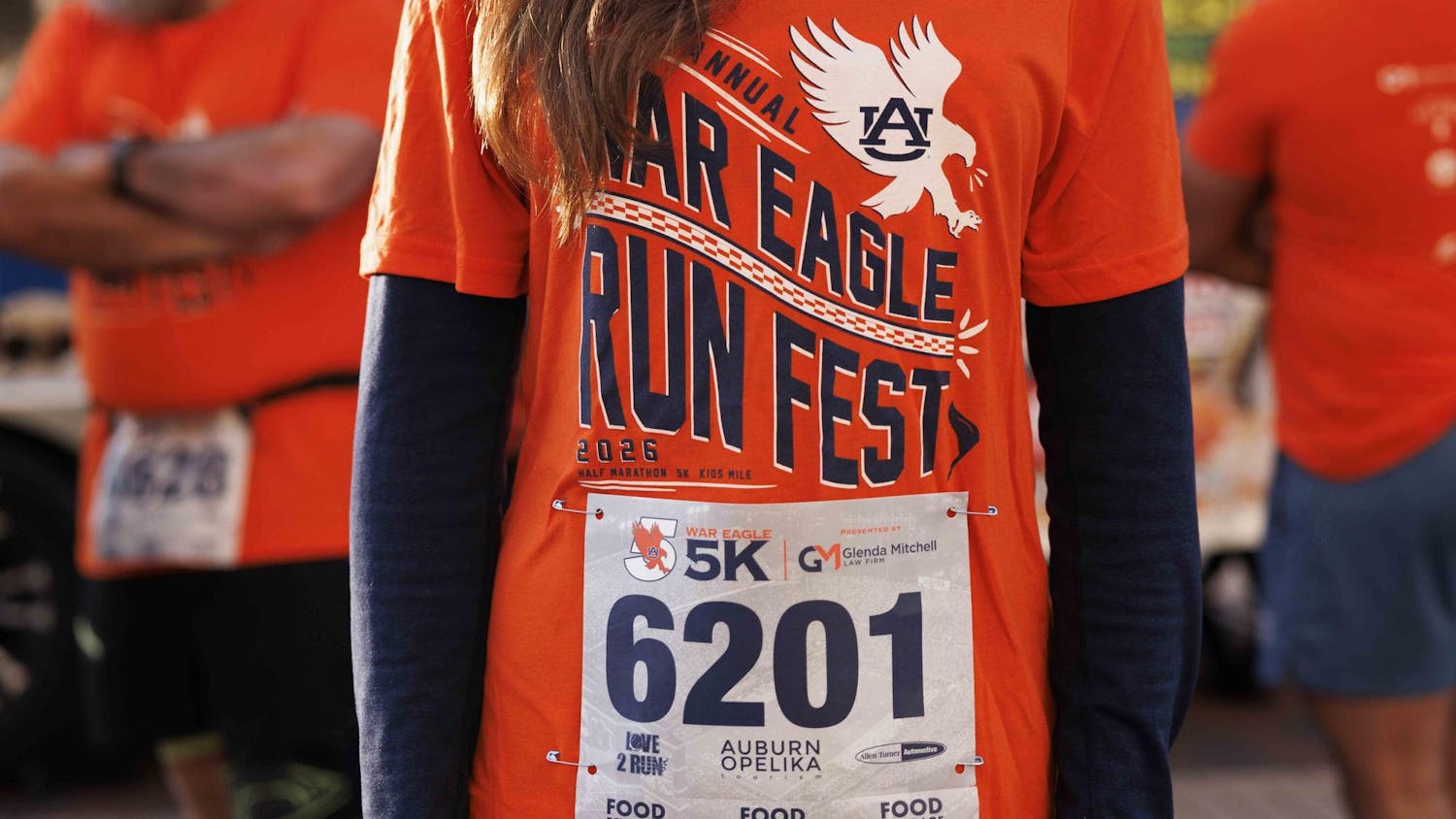Year after year, locals die trying to cross a Bolivian river in a makeshift gondola.
Greg Ryland, a professional engineer, came to the first meeting of the Auburn chapter of Engineers Without Borders to tell the story of building a bridge across that river.
Ryland graduated from Auburn with an undergraduate degree in math and physics, as well as a degree in engineering.
"The location is five hours, at best, from the nearest village," Ryland said. "Getting the materials to us was a creative process. They have to come down the face of a mountain."
All the group's supplies had to be carried down a 4,000-foot elevation to reach the building site. This included bags of sand and cement, water and cables.
"We spent six hours on real roads and six more on bad dirt roads, " Ryland said. "We ended up at 13,000 feet. We walked, with everything on our backs, to 9,000 feet. The path is maybe two feet wide and the walk down takes three to four hours. I say this to emphasize how strenuous our project is."
Chris Canon was the project manager on the Bolivian Bridge Project.
The project worked with Bridges to Prosperity, an organization that has sponsored similar bridge-building projects in 17 locations worldwide. The mission statement of Bridges to Prosperity states it is "a volunteer based charity that seeks to empower poor African, Asian and South American rural communities through footbridge building, thereby advancing personal responsibility, community public works, economic prosperity and access to schools, clinics, jobs and markets."
The bridge Canon and Ryland helped build was across a tributary to the Mamore Grande River and was named the Quesimpuco Bridge. The suspended bridge spans 350 feet and serves a population of 5,000 people.
Auburn United Methodist Church and SIFAT, Servants in Faith and Technology, sponsored the bridge project. AUMC and SIFAT have been working in Quesimpuco, a high Andes Quenchua village, for 10 years. Through their efforts, the village now has a school, a community center, a clinic, power systems and a church, according to Bridges to Prosperity's Web site.
"I wanted to be an engineer to become MacGyver ,and I've been drowning in text books," said Lori Beth Dutcher, secretary of Auburn's EWB chapter.
"No matter what type of engineer you are, in this project you have to use your basic engineering knowledge and learn to adapt," Ryland said.
Engineers Without Borders has more than 300 chapters and 12,000 members.
"Auburn's chapter is interested in doing international projects to better the lives of people while supporting local service organizations," said Andy Todd, president of the Auburn chapter.
"I want to work in third-world development," said Will McCartney, vice president of Auburn's chapter of Engineers Without Borders. "You can affect your world, not just people in college."
The organization has a plan for Auburn engineering students to take an active roles in their education. The group's potential projects include continuing work at the Bolivian site and a spring break service project dealing with Gulf Coast relief or rural studio. The local chapter plans to attend the Boys and Girls Club to help students with schoolwork.
Do you like this story? The Plainsman doesn't accept money from tuition or student fees, and we don't charge a subscription fee. But you can donate to support The Plainsman.




